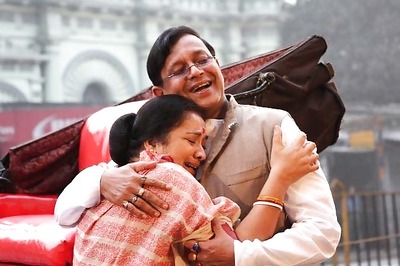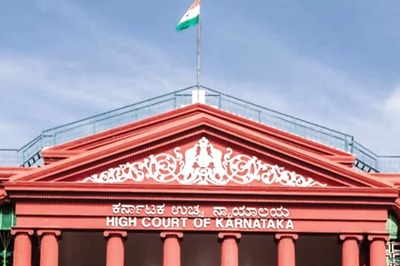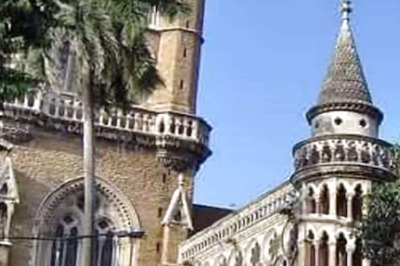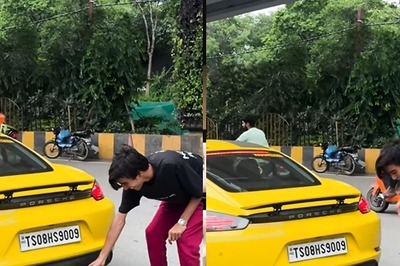
views
Patna: The recent autobiography of beleaguered Lalu Prasad - Gopalganj to Raisina (My Political Journey) - has caused a flutter in political circles just ahead of the Lok Sabha election.
In his memoir, the incarcerated Rashtriya Janata Dal (RJD) chief has dropped a bombshell by revealing that only six months after breaking up from the RJD and forming the government with the BJP, Nitish Kumar sent his emissary Prashant Kishor to him with the proposal to join hands with the RJD again.
JDU vice-president Prasant Kishor and official spokesperson Sanjay Singh were quick to dub the claim as ‘bogus’, ‘distorted’ and ‘aimed at creating confusion' during the election.
But Lalu's revelations, whatsoever ‘farce’ they might appear to be, have created ripples during peak of elections much to the discomfiture of Nitish Kumar.
For Lalu, whose absence from electioneering is feared to cast adverse impact on the poll prospects of RJD, this autobiography has provided him the much-desired relief and brought him on the centre-stage of poll narratives.
Barring this episode, Lalu has hitherto been absent from campaigning, as he has been lodged in prison ward of a Ranchi hospital. Though his Twitter account was active and full of remarks against Nitish Kumar and Narendra Modi even when he was behind the bars, the tweets failed to make the expected impact the way his punchy one-liners delivered in bucolic style used to make with his electorates during his heydays.
His autobiography has certainly added some colour to the hitherto ‘dull and drab’ electioneering in Bihar, but the timing of its announcement raises eyebrows and may invite the attention of Election Commission of India.
Only few days ago, Nitish had questioned the free use of phones from jail by the incarcerated Lalu Prasad to control political activities, forcing the Jharkhand jail authorities to carry raids in jail.
Though Lalu has brought out his autobiography this time, a number of books have been written on him in the past – some eulogising his phenomenal rise in politics while many others highlighting his lust for lucre, corruption and greed to amass assets much beyond his known sources of income.
These books carry details about his manoeuvres in the fodder scam and the recent corruption charges pertaining to alleged acquisition of prime plots in Patna through a benami company in lieu of award of contract to maintain two IRCTC hotels.
The first book ‘Lalu Chalisa’, on the pattern of Hanuman Chalisa, was written by one Brahmadeo Anand Paswan, who in lieu was rewarded with a Rajya Sabha ticket by Lalu. For over three decades, the ‘Lalu Chalisa’ served as an election tool for the RJD during Lok Sabha and Legislative Assembly elections as it projected his ‘larger than life’ image. The RJD candidates would religiously distribute the booklet among voters in their respective constituencies. When Lalu made Rabri Devi the chief minister, another booklet ‘Patni Chalisa’ was published but it could not attract much attention.
Lalu also attracted cartoonists as a series of cartoons and animation films were made by a cartoonist portraying the scams that surfaced during his regime. As railway minister, he caught the fascination of top business school professors and IIM-Ahmedabad chose him as a case study for his performance as railway minister.
A political anthropologist from US, Jeffrey Witsoe, picked Lalu Prasad’s politics and his governance as a topic of research. In his book, ‘Democracy against Development: Lower Caste Politics and Political Modernity in Postcolonial India’, Jeffrey has given credit to Lalu for empowering the subaltern but, at the same time, analysed the ways in which the politics of caste has led to a general breakdown of governance in Bihar.
Jeffrey said that the conflict between predominantly upper caste bureaucracy and an overwhelmingly intermediary and lower caste political leadership perpetuated the ingrained administrative inefficiency and marginalised development issues.
But the most-revealing book on Lalu has been authored by his friend from Patna University and present Deputy Chief Minister of Bihar, Sushil Kumar Modi.
The 200-page book in Hindi ‘Lalu Leela’ chronicles Lalu Prasad and his family and their account of theft, lust for amassing wealth, embezzlement and corruption during the last four decades.
The book meticulously provides details on how Lalu Prasad Yadav, his wife Rabri Devi, their two sons -Tej Pratap Yadav and Tejashwi Prasad Yadav – and their daughter Misa Bharti reportedly acquired 141 plots of land in prime locations, 30 flats in posh neighbourhoods and altogether six houses in Patna and big cities in the country.
In his book, Modi makes allegations of illegal money changing hands in the name of fake business names and shell companies to avoid attention of Vigilance and Enforcement Directorate and dodge the Income Tax department till the property is finally acquired by any member of the Lalu Prasad’s family.
The book says Lalu forced senior party leaders like Raghunath Jha, former union minister Kanti Singh to gift him plots of land and property in lieu of making them members of Rajya Sabha, Legislative Council and berth in the council of ministers.
“I have known Lalu Prasad Yadav for the past five decades now and probably know him better than even Rabri Devi. Lalu has a past history of corruption and he has passed it on to his children. Lalu is synonymous with corruption and lawlessness,” Modi told News18.com.
Two other dons of Bihar - Rajesh Ranjan alias Pappu Yadav and Anand Mohan Singh - have also written books depicting their travails and traumas. In his book titled ‘Drohkal Ka Pathik’ (Traveller of the troubled times), Pappu Yadav, acquitted in the murder case of former CPM MLA Ajit Sarkar, has alleged exchange of money for support during the 2008 no-trust vote in Parliament against the UPA government following withdrawal of support by Left parties over nuclear deal issue.
Former MP Anand Mohan, serving a jail term in connection with the killing of former Gopalganj District Magistrate G Krishnaiah, has penned a book titled ‘Qaid mein azad kalam’ which is collection of his poems. The poems in this collection reflect on Anand Mohan’s views on national politics, religion and various facets of his personal life.
Incidentally, books on both the musclemen politicians were released then by noted Hindi critique Namwar Singh.
(Author is a senior journalist, views are personal.)




















Comments
0 comment